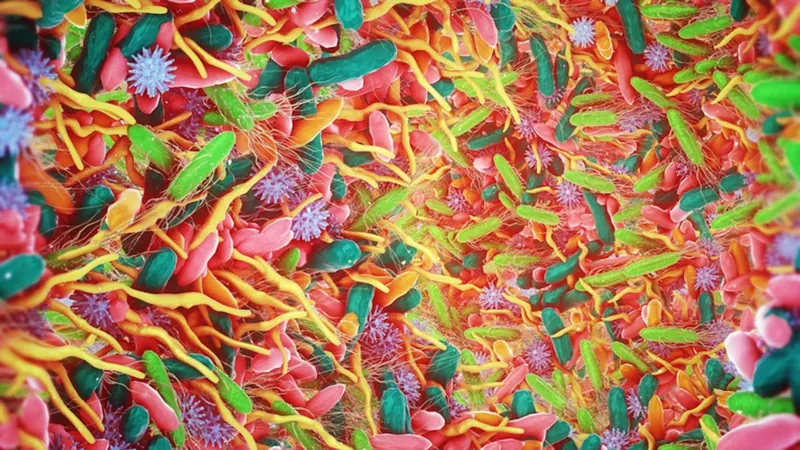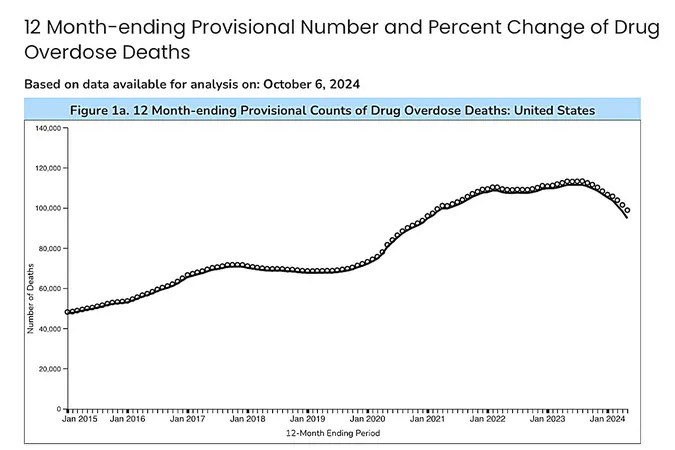
Unlocking the Secret to a Healthier Life: How Your Gut Bacteria Influence Chronic Diseases!
2024-11-03
Author: Arjun
Diet-related chronic diseases in the United States have reached alarming levels. Nearly half of the population is grappling with prediabetes or diabetes, and more than 40% are classified as overweight or obese. For those aged 65 and over, the grim statistic is that one in nine has Alzheimer's disease, with ongoing research investigating diet's possible role in this crisis. Poor dietary choices are also closely linked to mental health issues, cardiovascular diseases, and cancer. In fact, a staggering 20% of deaths in the U.S. can be attributed to poor diet, costing the healthcare system over $140 billion in 2016 alone.
As waistlines expand, research reveals another concerning factor: the gut microbiome—the trillions of bacteria residing in our digestive systems—along with our cell's energy factories, the mitochondria, remain desperate for nutrients that are often lacking in the American diet.
Your Health Is on Your Plate!
Scientific studies consistently highlight that a Mediterranean or whole food diet is linked to better health and longevity, while ultraprocessed options—think sodas, chips, and fast-food meals—are often tied to dire health outcomes such as diabetes, cardiovascular diseases, and even cancer.
However, shifting dietary habits on a nationwide scale is no small feat. Whole foods can sometimes be less convenient or appealing given contemporary preferences, while food processing plays a crucial role in preventing spoilage and increasing shelf life. For example, the processing of whole grains enhances their durability by stripping away the germ and bran, which spoil quickly. This ability to store affordable calories is essential in addressing food insecurity, a critical public health issue.
The conversation about diet often centers around what to avoid—refined sugars, unhealthy fats, excessive salt, and additives. Yet, while modern food processing can enhance certain nutrients, it often removes others that are equally vital for long-term health. The focus should also include what we can add to our plates: fibers, phytonutrients, necessary fats, and fermented foods.
Shocking statistics reveal that only 5% of Americans consume sufficient fiber—a critical prebiotic nutrient instrumental for metabolic, immune, and neurological health. There's a significant chance that we are also lacking in phytonutrients, potassium, and healthy fats, which are all associated with reduced risks of chronic illnesses.
The Power of Fermentation
Fermented foods are nature's way of processing, providing natural preservatives, flavors, and vitamins. Recent research points to the benefits of these foods, suggesting they can boost gut microbiome diversity and reduce systemic inflammation.
Identifying which bioactive nutrients specifically contribute to chronic diseases can inform the development of personalized diets tailored to various health conditions, financial realities, and taste preferences—all while making nutrition convenient and appealing to modern lifestyles.
The Gut-Mitochondria Connection
Understanding how nutrients affect both the gut microbiome and mitochondria gives us an opportunity to determine the best ingredients to incorporate into our diets and which ones should be minimized.
In the lower gut, bacteria convert hard-to-digest bioactive nutrients into biochemical signals that not only slow down digestion but also regulate our immune system. These signals dictate how much energy our body allocates to inflammation and fighting off infections, and they even affect our mood and appetite.
The microbiome's signals also play a crucial role in the growth and effectiveness of mitochondria across various cell types—including those in our fat, muscles, heart, and brain. When a diet is primarily composed of ultraprocessed foods, these critical signaling cues are diminished, impairing mitochondrial function. This dysfunction is linked to a host of issues, including obesity, diabetes, Alzheimer's disease, mood disorders, and cancer. A deeper understanding of the dietary elements that can enhance the microbiome-mitochondria axis could lead to tangible reductions in chronic disease burdens.
In the wise words attributed to Hippocrates, "Let food be thy medicine." A growing body of research suggests that indeed, our dietary choices can heal. By illuminating the intricate connections between our diet, health, microbiome, and mitochondria, we can pave the way for a healthier, more vibrant future. Healthy aging shouldn’t have to be a luxury; it can be a reality for everyone if we make informed choices about what we eat!
This could be a pivotal moment in public health—let’s take action today! Explore the world of nutrient-rich foods that can transform not just your diet, but your entire life!


 Brasil (PT)
Brasil (PT)
 Canada (EN)
Canada (EN)
 Chile (ES)
Chile (ES)
 España (ES)
España (ES)
 France (FR)
France (FR)
 Hong Kong (EN)
Hong Kong (EN)
 Italia (IT)
Italia (IT)
 日本 (JA)
日本 (JA)
 Magyarország (HU)
Magyarország (HU)
 Norge (NO)
Norge (NO)
 Polska (PL)
Polska (PL)
 Schweiz (DE)
Schweiz (DE)
 Singapore (EN)
Singapore (EN)
 Sverige (SV)
Sverige (SV)
 Suomi (FI)
Suomi (FI)
 Türkiye (TR)
Türkiye (TR)